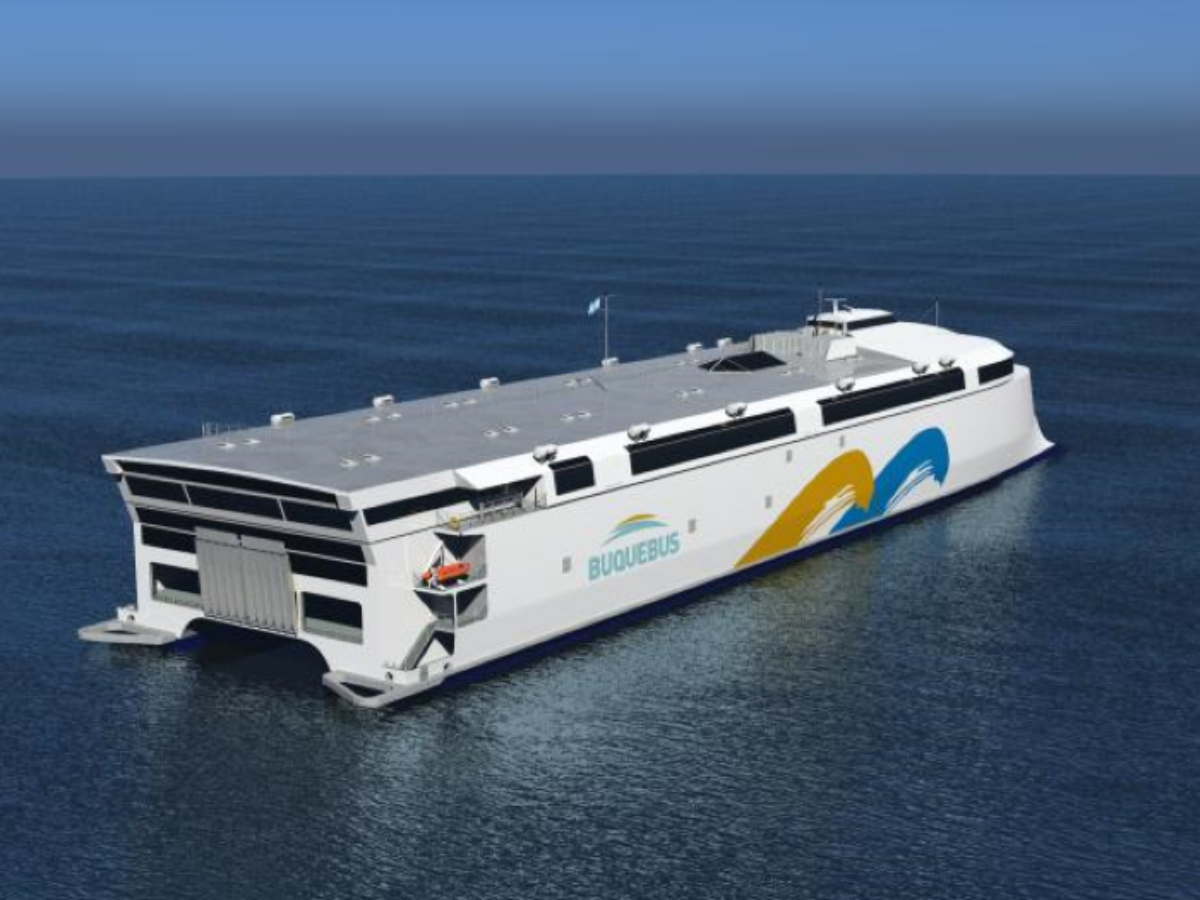Big battery for Incat’s first electric car and passenger ferry

A big electric passenger and vehicle ferry needs a big battery – and electric vessels don't come much bigger than leading Tasmanian ferry builder Incat's ferry being built for South American customer, Buquebus.
The 130 metre long catamaran ‘utility Ro-Pax’ design (pictured) announced in January will be capable of carrying up to 2,100 passengers and 225 cars at up to 25 knots, driven by two electric drives mounted in pods beneath the hull.
Powered by 5.0 and 9.6 MW propulsion systems the vessels, which will operate across the River Plate estuary from Buenos Aires to Colonia, near the Uruguayan capital of Montevideo, will be fitted with more than 40 MWh of energy storage.
According to Corvus, it will be the largest battery system installed onboard a ship – four times as big as the current largest installation.
Corvus Energy was selected by technology group Wärtsilä to supply the battery systems for the world`s largest 100% electric lightweight Ro-Pax ferry.
Commercial Director Europe of Corvus Energy Halvard Hauso said: “This groundbreaking project marks a turning point in the maritime industry’s effort to transition towards greener means of transportation.
“Combining cutting-edge technology, environmental consciousness, and innovative design, it redefines the future of ferry operations worldwide and paves the way for other large, zero-emission vessels.”
This vessel will be the largest of its type with the highest energy storage system (ESS) capacity and it will also have the longest zero-emission journey, at the highest speed, and it will be charged with the world’s highest capacity chargers.
“The ferry will also be the first fully electric vessel in South America, operating between Argentina and Uruguay.
“(This project demonstrates that) maritime decarbonization is now happening worldwide, not only in Europe.”
Corvus` latest Dolphin NextGen battery is based on the architecture of the four-year, multi-million development programme for the Corvus Blue Whale ESS.
The Blue Whale development included a ground-up redesign that reevaluated and improved every aspect of battery design, including battery chemistry, mechanical and electrical design, and software building blocks.
The battery systems are scheduled for delivery end of 2024 and the vessel will enter operation in 2025.
Further reading:
Incat sells first electric passenger and vehicle ferry
Picture: Incat
@aumanufacturing Sections
Analysis and Commentary Awards casino reviews Defence Gambling Manufacturing News Online Casino Podcast Technology Videos





